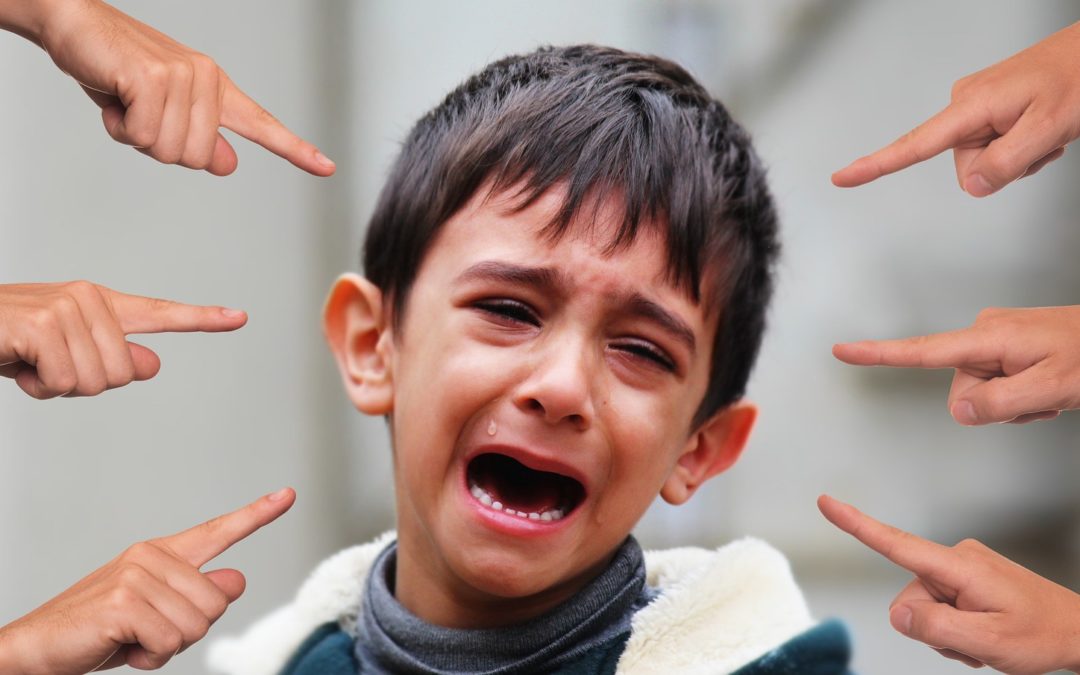There’s nothing worse than hearing your child say they had a bad day at school, especially when it may have been caused by the actions of a classmate or friend. As parents we instinctively want to protect our children from any harm, whether physical or emotional. We immediately assume our own child’s innocence in the situation and label the offender as a bully!
But, as scholastic reminds us: “Not all aggression is bullying at this age. Some preschoolers are aggressive because they haven’t yet learned the right language and social skills. Your child’s teacher is trained to know the best approach to take if another child is behaving aggressively towards your child.”- https://www.scholastic.com/parents/family-life/parent-child/why-impulse-control-harder-ever.html
Our little ones are still learning to voice their feelings and opinions, and they may express a certain level of frustration when these are not properly understood by those around them, which leads to some children lashing out at their friends.
These frustrations are often difficult to deal with, but as adults (both parents and teachers and other caregivers) we need to help our children manage their emotions, equipping them with tools and skills to better handle the situations which trigger their outbursts. The best way we can do this is by modeling the behaviour we expect from our children. Calling other children names and labeling them as bullies can cause deeper issues and ostracisation between the children at school. Some other strategies from Child Mind Institute include:
- Stay calm. Faced with a raging child, it’s easy to feel out of control and find yourself yelling at them. But when you shout, you have less chance of reaching them. Instead, you will only be making them more aggressive and defiant. As hard as it may be, if you can stay calm and in control of your own emotions, you can be a model for your child and teach them to do the same thing.
- Acknowledge children’s emotions and follow this up with a discussion around expectations of what constitutes appropriate behaviour in a given situation (often children hear us telling them what not to do but don’t have clarity on what they *should* do).
- Don’t give in. Don’t encourage them to continue this behavior by agreeing to what they want in order to make it stop. Children need boundaries, and we need to make it clear to them that certain things (such as lashing out and physically hurting others) are *never* acceptable.
- Praise appropriate behavior. When they have calmed down, praise them for pulling themselves together. And when they do try to express their feelings verbally, calmly, or try to find a compromise on an area of disagreement, praise them for those efforts.
- Help them practice problem-solving skills. When your child is not upset is the time to help them try out communicating their feelings and coming up with solutions to conflicts before they escalate into aggressive outbursts. You can ask them how they feel, and how they think you might solve a problem.
- Avoid triggers. Vasco Lopes, PsyD, a clinical psychologist, says most kids who have frequent meltdowns do it at very predictable times, like homework time, bedtime, or when it’s time to stop playing, whether it’s Legos or the Xbox. The trigger is usually being asked to do something they don’t like, or to stop doing something they do like. Time warnings (“we’re going in 10 minutes”), breaking tasks down into one-step directions (“first, put on your shoes”), and preparing your child for situations (“please ask to be excused before you leave Grandma’s table”) can all help avoid meltdowns.
Remember to always speak to your child about their day, listen for things that upset them and chat with your principal or class teacher. By bringing these things to our attention we are able to be there for your little one during the day, assisting them at the moment to be able to speak about how they are feeling.

Recent Comments